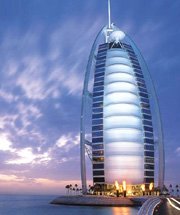
- Packages
- Destination
-
Attraction
By Category
Top Attraction

- Agents
- Car Rentals
- Hotels
Milford Sound is one of New Zealand’s most stunning natural attractions, located in the southwest of the South Island within the Otago region. Surrounded by towering cliffs, lush rainforests, and majestic waterfalls, Milford Sound is a breathtaking fjord that has been carved by glaciers over millions of years. It is part of the Fiordland National Park and a UNESCO World Heritage Site, making it a top destination for nature lovers and adventure seekers from around the world.
Milford Sound is accessible by road, air, and water. The most common way to reach Milford Sound is by road from the town of Te Anau, which is around 120 km away (approximately 2.5 hours by car). The journey to Milford Sound is just as beautiful as the destination itself, with scenic landscapes, lakes, and forests along the way. You can drive yourself or take a guided coach tour from Queenstown or Te Anau.
Alternatively, you can take a scenic flight from Queenstown or Te Anau. These flights offer incredible aerial views of the Southern Alps and the fjord below. Some visitors also choose to travel by cruise ship into Milford Sound from the Tasman Sea, especially as part of larger tours.
Milford Sound has a temperate rainforest climate and is one of the wettest places in New Zealand, receiving around 6,800 mm of rain annually. Rainfall can occur at any time of the year, which enhances the beauty of the waterfalls. The temperatures are mild, with summer (December to February) temperatures ranging from 10°C to 25°C and winter (June to August) temperatures ranging from 0°C to 10°C.
Despite the frequent rain, Milford Sound is beautiful in all weather. Rain creates hundreds of temporary waterfalls cascading down the cliffs, while sunny days offer clear reflections in the water and views of the surrounding peaks.
Milford Sound is open all year round and can be visited at any time of the day. However, most cruises and guided tours operate between 9:00 AM and 5:00 PM. Early morning and late afternoon trips are less crowded and provide beautiful lighting for photography.
Milford Sound is famous for its dramatic natural scenery. Towering Mitre Peak rises sharply from the water, while waterfalls like Stirling Falls and Bowen Falls cascade from steep cliffs. The fjord is home to a variety of wildlife, including seals, dolphins, penguins, and rare bird species.
It is also well-known for its kayaking, hiking, and cruising experiences. The natural beauty and untouched wilderness of Milford Sound make it one of the most photographed and admired places in New Zealand.
There is no entry fee to visit Milford Sound itself, but activities such as boat cruises, kayaking tours, and guided hikes usually come at a cost. It's advisable to book tours in advance, especially during peak travel seasons. The Milford Sound Visitor Terminal is where most cruises depart and where information about tours and the surrounding area is available.
There is a small fee to drive through the Milford Road (SH94) for maintenance purposes, and parking charges apply at the Milford Sound car park.
Milford Sound was formed during the Ice Ages when glaciers carved out deep valleys, which later filled with sea water as the glaciers melted. The Māori people have known about the fjord for centuries and called it Piopiotahi, after a legendary bird.
European explorer John Grono was the first to discover it in the 1820s and named it Milford Sound after Milford Haven in Wales. The area remains relatively untouched by man-made structures, preserving its raw and natural beauty. Most architectural elements, such as the visitor terminal and boat docks, are built to blend into the environment with eco-friendly materials.
- Boat Cruises: One of the best ways to explore Milford Sound is on a scenic cruise. You’ll get close to waterfalls, wildlife, and sheer rock faces.
- Kayaking: For a more intimate experience, kayaking is a popular activity that lets you explore hidden coves and quieter parts of the fjord.
- Hiking: The Milford Track, one of New Zealand’s Great Walks, offers a multi-day hiking experience through mountains, valleys, and rivers.
- Scenic Flights: Take a helicopter or fixed-wing flight for unforgettable aerial views.
- Diving and Underwater Observatory: Discover black coral and marine life at the Milford Sound Underwater Observatory.
- Despite being called a “Sound,” it is actually a fjord, which is a valley carved by glaciers.
- The rainfall enhances its beauty, so don’t be disappointed by wet weather.
- Bring rainproof gear, even in summer.
- Book tours in advance, especially in the summer months (December to February).
- Fuel stations are not available in Milford Sound, so fill up your vehicle in Te Anau.
- There’s limited or no mobile signal, so plan accordingly.
- It’s best to stay overnight in Te Anau or consider an overnight cruise on Milford Sound.